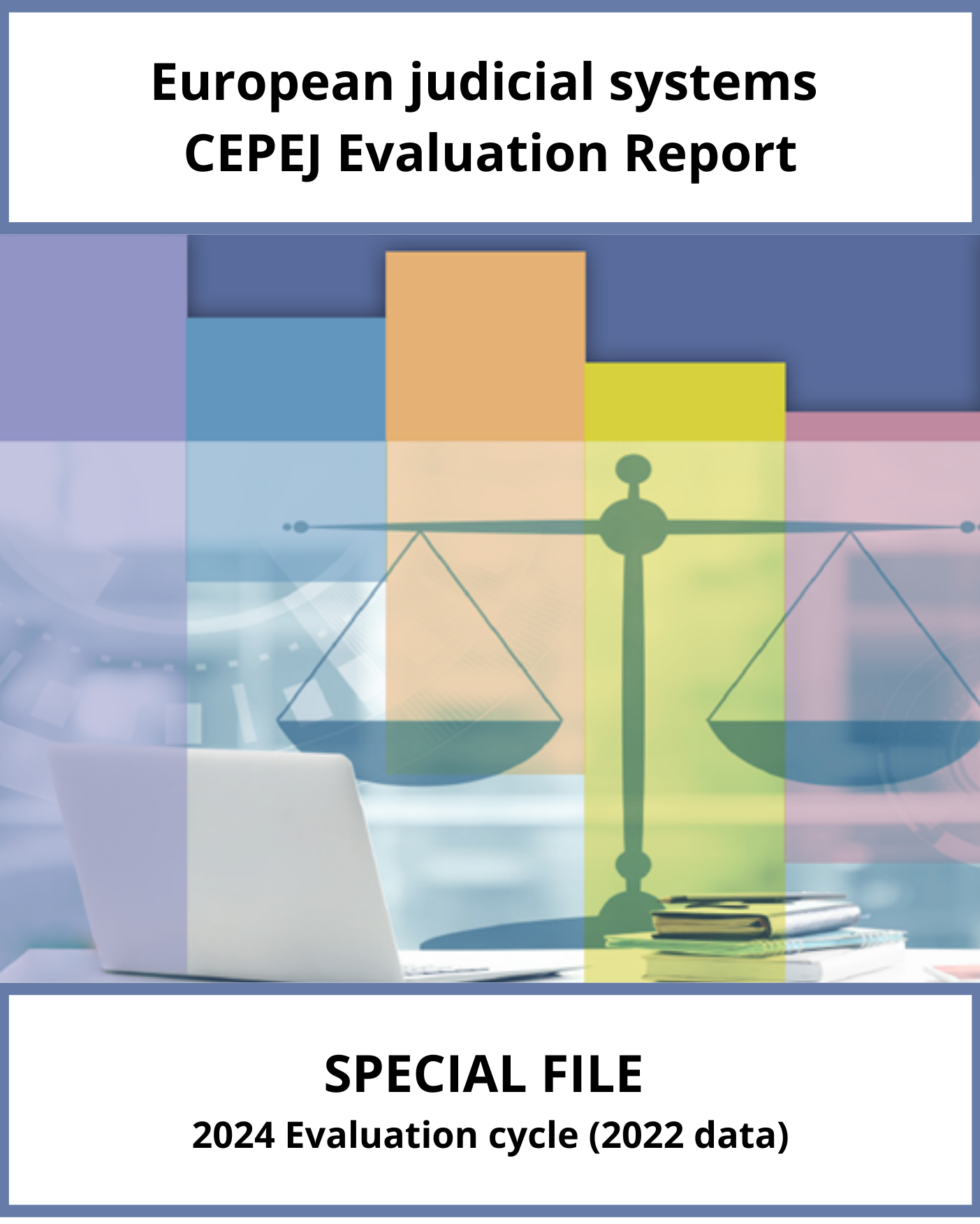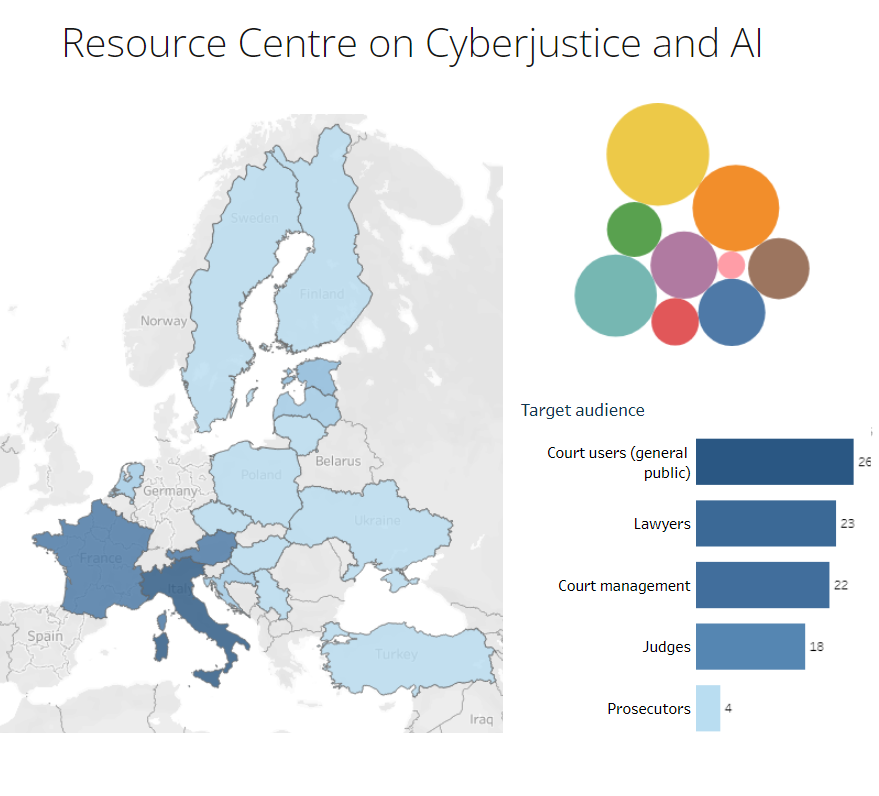CEPEJ Artificial Intelligence Advisory Board (AIAB)
The CEPEJ Artificial Intelligence Advisory Body (AIAB) provides expert advice on Artificial Intelligence (AI) related issues in the judicial environment. It was established in 2022 to support the CEPEJ in monitoring the actual emergence of AI applications in the justice sector and to implement related strategies as well as to contribute to the reflection on the use of AI in justice systems with respect to fundamental rights.
The AIAB is a key element of the CEPEJ’s Roadmap to ensure an appropriate follow-up of the CEPEJ “European Ethical Charter on the use of artificial intelligence (AI) in judicial systems and their environment”, adopted in 2018.
The AIAB is steered by, and reports regularly to both the CEPEJ Working Groups on Cyberjustice and Artificial Intelligence (CEPEJ-GT-CYBERJUST) and on Quality of Justice (CEPEJ-GT-QUAL).
The AIAB Members
The AIAB is composed of five board members, appointed with a view to their qualifications while ensuring overall diversity and complementarity of the board, namely:
Mandate 2024-2025
Katie Marie Atkinson (United Kingdom)
Jehanne Dussert (France)
Alfonso Peralta Gutierrez (Spain)
Matthieu Quiniou (France)
Marek Świerczyński (Poland)
The AIAB regularly monitors the actual emergence of AI applications in the justice sector
There are numerous debates concerning various tools using algorithms that are already or likely to be used in the field of justice. However, applications are often pilot projects that are not widely implemented or developed. The CEPEJ contributes to the debate by providing a register of existing AI applications in the judiciary, additionally providing information on the use case.
The information on AI systems is presented in the “Resource Centre on Cyberjustice and Artificial Intelligence”, after validation by the AIAB.
The Resource Centre shall serve as a publicly accessible focal point for structured and reliable information on AI systems and other key cyberjustice tools applied in the digital transformation of the judiciary, and:
- help authorities tasked with the planning and implementation of digitalisation of justice to gain an overview of applied key systems and exchange on the use cases;
- provide a starting point for further examination of key systems and discussion on their risks and opportunities;
- provide professional and end-users with information on key systems they are using or are exposed to, in line with the “European Ethical Charter on the use of Artificial Intelligence in Judicial Systems and their Environment”.
The AIAB provides targeted advice on issues of AI in the judicial sector
The AIAB provides expert guidance on the operationalisation of the principles of the CEPEJ Charter, which will take the form of an “Assessment Tool” for the compliance of AI systems with the principles of the Charter. The tool will give authorities in charge of implementing judicial AI systems more practical guidance on how to apply the five principles laid down in the CEPEJ Charter.
The AIAB advises the CEPEJ working groups on possible new strategies concerning the use of AI in the justice system respecting fundamental rights
The AIAB contributes to relevant discussions and ensures that the CEPEJ has the required expertise and finds the right answers to the challenges and opportunities that AI presents to the judiciaries in the Council of Europe’s member States and beyond.
The full Terms of Reference can be accessed following this link.
- How to make Artificial Intelligence work for the Judiciary – Reflections of the CEPEJ’s Artificial Intelligence Advisory Board - European Commission for the Efficiency of Justice (CEPEJ)
- 1st Report on the use of Artificial Intelligence (AI) in the judiciary, based on the information contained in the CEPEJ’s Resource Centre on Cyberjustice and AI - European Commission for the Efficiency of Justice (CEPEJ)
1st Report on the use of Artificial Intelligence (AI) in the judiciary, based on the information contained in the CEPEJ’s Resource Centre on Cyberjustice and AI
On 17 February 2025, the Artificial Intelligence Advisory Board (AIAB) met to finalise the Report on the use of Artificial Intelligence (AI) in the judiciary. The findings presented in the report are based on the analysis of the information provided through the CEPEJ’s Resource Centre on...
Assessing the potential impact of artificial intelligence systems on human rights: a new mission for the CEPEJ's Artificial Intelligence Advisory Bureau (AIAB)
The CEPEJ's Artificial Intelligence Advisory Board (AIAB), tasked with guiding the CEPEJ on the current challenges and opportunities of artificial intelligence (AI) systems applied to the judicial environment, met on May 13, 2024, in its new composition. In particular, the AIAB is responsible for...
CEPEJ appoints Members for its Artificial Intelligence Advisory Board for the period 2024-2025
Following a call for the expression of interest, the CEPEJ Bureau appointed five members to the CEPEJ Artificial Intelligence Advisory Board (AIAB). The AIAB was established at the 38th CEPEJ plenary meeting in Malta on 27 June 2022, has a term of two years and is strengthening the CEPEJ’s...
Towards a better application of the CEPEJ Ethical Charter on Artificial Intelligence
The CEPEJ’s Artificial Intelligence Advisory Board (AIAB) convened on 21 September for its 5th meeting to discuss the draft “Assessment Tool”, operationalising the “European ethical Charter on the use of AI in judicial systems and their environment”. The forthcoming tool will provide clear and...
Identification of Judicial Artificial Intelligence Systems in Europe
The CEPEJ’s Artificial Intelligence Advisory Board (AIAB) convenes on 6 March to review the content of the “Resource Centre on Cyberjustice and AI”, ahead of its official publication on the CEPEJ website. The Centre will present a first overview of existing judicial AI systems in the CoE member...
First meeting of the CEPEJ Advisory Board on Artificial Intelligence (AIAB)
At its 38th plenary meeting last June, the CEPEJ created an Advisory Board on Artificial Intelligence (AIAB) in order to strengthen its expertise on issues related to artificial intelligence (AI) in judicial systems, and to support the detailed operationalisation of the five principles of the...
Stepping up expertise on Artificial Intelligence in Judicial Systems
The CEPEJ Artificial Advisory Board on Artificial Intelligence (AIAB) was established at the 38th CEPEJ plenary meeting in Malta on 27 June 2022. The advisory board has a term of two years and will strengthen the CEPEJ’s expertise on issues related to Artificial Intelligence (AI) in Judicial...






